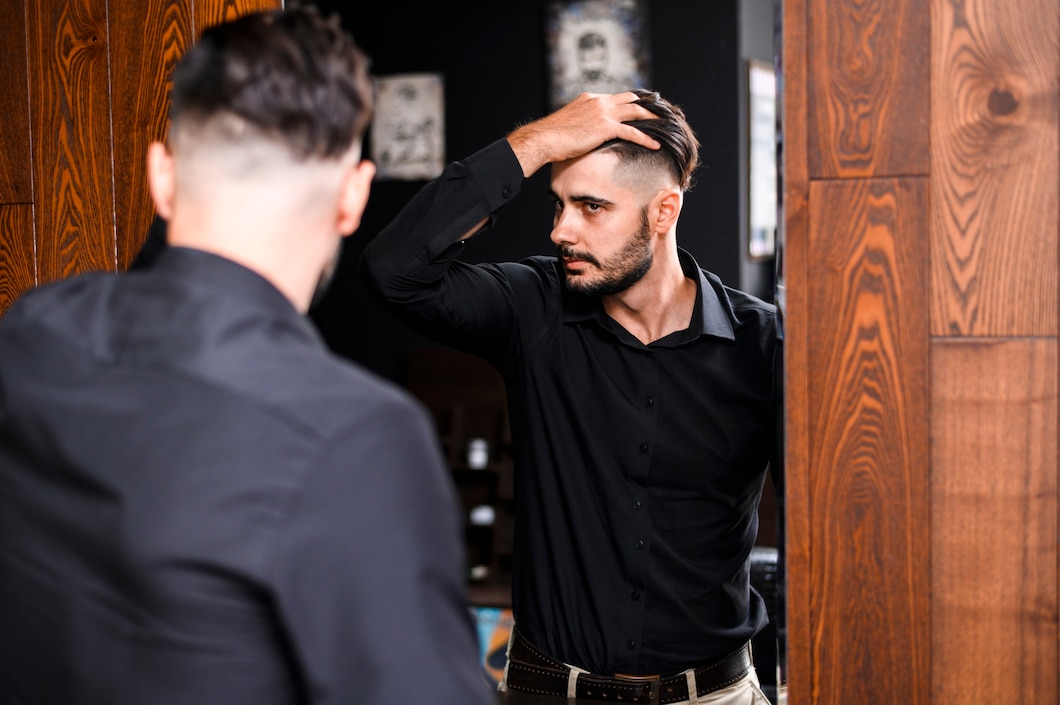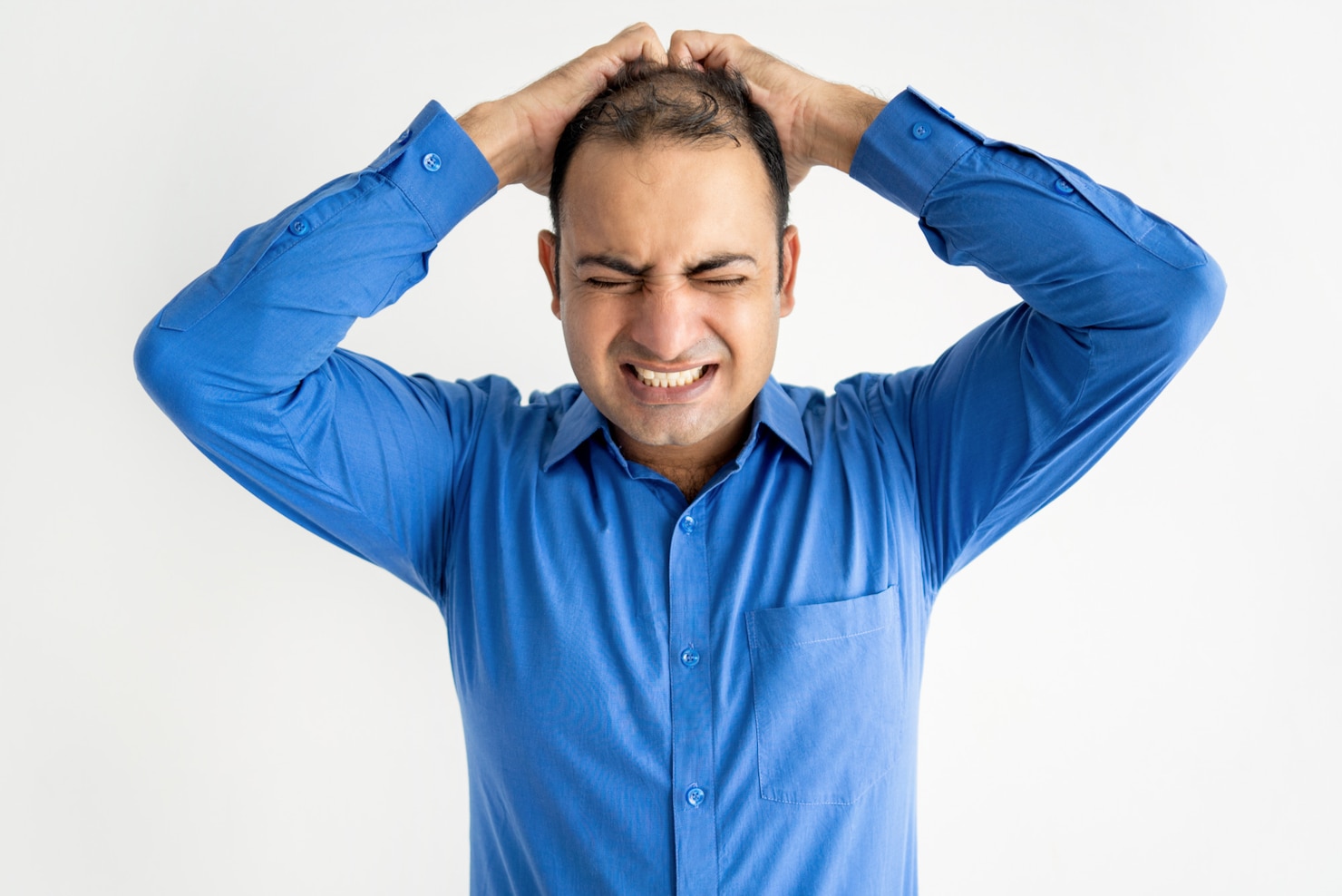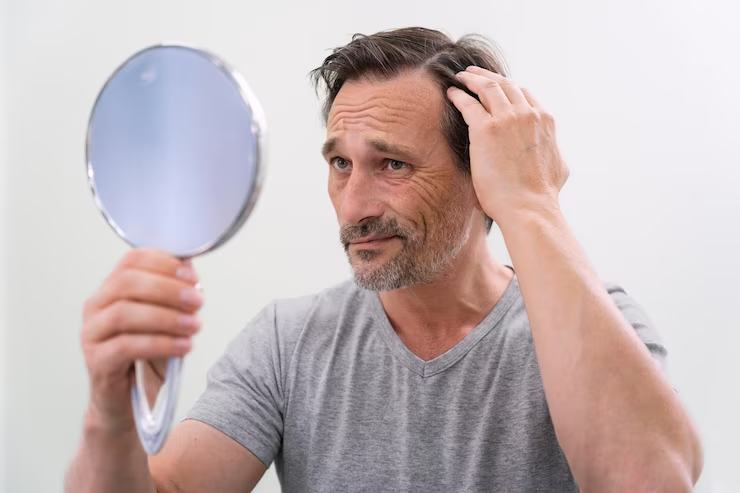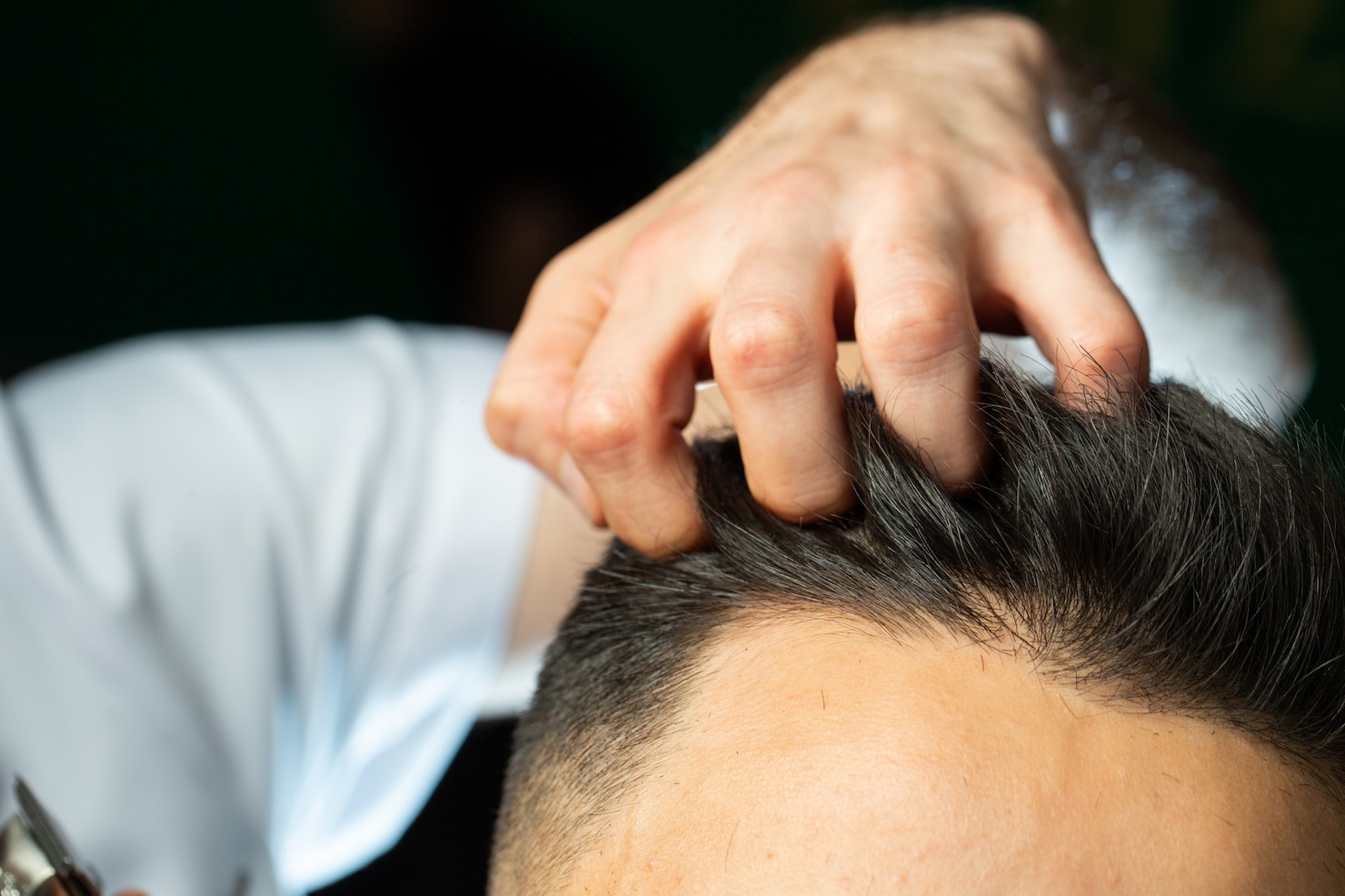
Are you experiencing the discomfort of an itchy scalp due to minoxidil usage? With that, have you been endlessly looking up terms like “minoxidil itchy scalp,” “can minoxidil cause hair loss,” “minoxidil dosage for hair loss,” and “low dose minoxidil for hair loss” in search of answers?
Don't worry; we've got you covered!
In this blog post, we will explore effective solutions to relieve and soothe a minoxidil-induced itchy scalp. Minoxidil is a popular hair growth treatment, but it can sometimes come with the unwanted side effect of an itchy scalp. We will delve into the causes and triggers of this discomfort and provide you with science-backed strategies, natural remedies, and product recommendations to help you find relief. Let's dive in and discover the solutions you've been searching for.
Understanding Minoxidil Itchy Scalp Discomfort
What is minoxidil and its benefits for hair growth?
Minoxidil, a popular hair growth treatment, has been hailed for its ability to promote hair regrowth and combat hair loss. This remarkable compound, originally developed as an oral medication for high blood pressure, has found its niche in the realm of hair restoration.
Minoxidil works by widening the calibre of blood vessels, a phenomenon referred to as vasodilation, and improving blood flow to the hair follicles, thereby stimulating hair growth and thickening existing hair strands. Its benefits for hair growth have made it a go-to solution for individuals seeking to revitalize their luscious locks.
Common side effects of minoxidil and the itchy scalp discomfort associated with it.
When embarking on a minoxidil regimen, it is crucial to be aware of the potential side effects that may arise. While minoxidil is generally well-tolerated, one of the most commonly reported discomforts associated with its use is an itchy scalp. This sensation of itchiness can vary in intensity and may occur shortly after applying the solution to the scalp.
The itchy scalp discomfort experienced with minoxidil use can be attributed to various factors. One possibility is that minoxidil, as a vasodilator, may cause mild irritation or inflammation of the scalp. Additionally, minoxidil formulations often contain alcohol, which can have a drying effect on the scalp, leading to itchiness and flaking.
Key Takeaway:
Minoxidil, a renowned hair growth treatment, offers significant benefits in stimulating hair regrowth and thickening existing strands. However, one common side effect reported by users is an itchy scalp discomfort, which may be attributed to the medication's vasodilating properties and the presence of drying agents. While the majority of individuals experience a reduction in itchiness over time, consulting a healthcare professional is advisable if the discomfort persists.Causes and Triggers of minoxidil Itchy Scalp

Image Source: FreePik
Chemical composition of minoxidil and its impact on the scalp.
Minoxidil, a renowned hair growth medication, possesses a chemical composition that can potentially lead to an itchy scalp. As a vasodilator, minoxidil dilates the blood vessels, increasing blood flow to the hair follicles. This enhanced circulation stimulates hair growth but may also result in scalp irritation and itchiness. The specific mechanism by which minoxidil triggers itchiness is not yet fully understood, but it is believed to be associated with the compound's interaction with the scalp's nerve endings.
Factors that contribute to the development of an itchy scalp with minoxidil usage.
Several factors can contribute to the development of an itchy scalp when using minoxidil. Firstly, individual sensitivity to the medication plays a crucial role. Some individuals may have a heightened sensitivity to minoxidil, making them more prone to experiencing scalp itchiness.
Secondly, improper application and excessive use of minoxidil can exacerbate scalp irritation. It is essential to follow the recommended dosage and application guidelines provided by your healthcare professional or the product label. Additionally, pre-existing scalp conditions, such as seborrhoeic dermatitis or eczema, can be aggravated by using minoxidil,leading to increased scalp itchiness.
Key Takeaway:
Minoxidil's chemical composition as a vasodilator can lead to scalp itchiness, possibly due to its interaction with nerve endings. Factors such as individual sensitivity, improper application, and pre-existing scalp conditions can contribute to an itchy scalp. Following proper usage guidelines and addressing any underlying conditions can help manage and reduce discomfort.Effective Strategies to Relieve Minoxidil Itchy Scalp
Gentle cleansing and scalp care routine for minoxidil users.
When dealing with a minoxidil itchy scalp, implementing a gentle cleansing and scalp care routine can significantly alleviate discomfort and promote scalp health.
Start by selecting a mild, sulfate-free shampoo specifically formulated for sensitive scalps. Avoid harsh chemicals and fragrances that may further irritate your scalp. Gently massage the shampoo into your scalp, focusing on the affected areas, and rinse thoroughly with lukewarm water. Remember to be gentle during the process to avoid additional irritation. Also, do not shampoo your scalp on a daily basis because the chemicals in the shampoos can interfere with sebum production which, in turn, can furthermore irritate the scalp and worsen itchiness of the scalp.
After shampooing, consider incorporating a soothing conditioner that contains nourishing ingredients like aloe vera or chamomile. Apply the conditioner to the lengths of your hair, avoiding direct contact with the scalp. Leave it on for the recommended time, and then rinse thoroughly. This will help hydrate and soften your hair without exacerbating the itchy scalp.
Natural remedies and treatments to alleviate itchiness and discomfort.
In addition to a gentle cleansing routine, there are several natural remedies and treatments that can effectively alleviate itchiness and discomfort associated with minoxidil usage. One option is to apply aloe vera gel directly to the affected areas of the scalp. Aloe vera possesses soothing and anti-inflammatory properties that can provide relief and reduce redness.
Another natural remedy is tea tree oil. Dilute a few drops of tea tree oil with a carrier oil, such as coconut oil, and gently massage it into your scalp. Tea tree oil has antimicrobial properties and can help soothe itchiness and reduce inflammation.
Key Takeaway:
To relieve minoxidil itchy scalp, adopt a gentle cleansing routine using mild, sulfate-free shampoos and nourishing conditioners. Natural remedies like aloe vera gel and tea tree oil can provide soothing relief, while moisturizing your scalp with hypoallergenic products helps maintain scalp health.Products to Consider for Minoxidil Itchy Scalp

Image Source: FreePik
Key Features to Look for in Shampoos and Conditioners for Sensitive Scalps
When selecting shampoos and conditioners for your sensitive scalp while undergoing minoxidil treatment, it is crucial to pay attention to specific key features. These features will ensure that the products you choose effectively address the challenges posed by minoxidil-induced scalp itchiness.
First and foremost, opt for shampoos and conditioners that are formulated specifically for sensitive scalps. These products are designed to provide gentle care and minimize irritation, making them ideal for individuals experiencing discomfort due to minoxidil usage. Look for key phrases such as "gentle formula" or "suitable for sensitive scalps" on product labels to ensure they cater to your unique needs.
Additionally, prioritize products that offer moisturizing properties. Minoxidil can sometimes lead to dryness and flakiness, exacerbating scalp itching. To combat this, seek out shampoos and conditioners that contain hydrating ingredients like aloe vera, coconut oil, or glycerin. These nourishing elements will help replenish moisture levels in your scalp, reducing itchiness and promoting a healthier scalp environment.
Key Takeaway:
When searching for products to alleviate minoxidil-induced itchy scalp, focus on shampoos and conditioners specifically designed for sensitive scalps. Look for gentle formulas and moisturizing ingredients like aloe vera or coconut oil to combat dryness and flakiness.Frequently Asked Questions about Minoxidil Itchy Scalp
Can Minoxidil Itchiness Be Prevented?
Dealing with minoxidil-induced itchiness can be bothersome, but there are measures you can take to minimize or prevent it altogether. Firstly, it is essential to follow the recommended application instructions provided by your healthcare professional or as indicated on the product packaging. Applying minoxidil in excessive amounts or more frequently than directed can increase the likelihood of scalp irritation and itchiness. Adhering to the prescribed dosage will help reduce the risk of experiencing discomfort.
How Long Does It Take for the Scalp to Adjust to Minoxidil?
The adjustment period for the scalp when starting minoxidil treatment varies from person to person. It is not uncommon to experience initial itchiness or mild irritation during the first few weeks of usage. However, this discomfort typically subsides as your scalp gradually adapts to the medication. In most cases, the scalp adjusts within 2 to 4 weeks of consistent use.
During the adjustment period, it is crucial to remain patient and continue following your minoxidil treatment plan as prescribed. Avoid discontinuing the use of minoxidil due to temporary itchiness, as this can interrupt the effectiveness of the treatment. Instead, give your scalp sufficient time to acclimate to the medication, and consult with your healthcare professional if the itchiness persists or becomes excessively uncomfortable.
In case of excessive irritation, immediately visit your dermatologist who prescribed you minoxidil because for people with increased sensitivity, the treatment plan has to be modified and a dermatologist can give you the best opinion because discontinuation of a medicine causing irritation is more important than having really bad itching and other side effects that affect your quality of life.
Key Takeaway:
To prevent minoxidil-induced itchiness, follow the recommended application instructions and avoid overuse. Incorporate moisturizing and gentle shampoos into your hair care routine to soothe the scalp. Be patient during the adjustment period, as it may take 2 to 4 weeks for the scalp to adapt to minoxidil treatment. If the itchiness persists or worsens, consult your healthcare professional for guidance.Conclusion
Understanding the causes and triggers of minoxidil itchy scalp discomfort is essential for finding relief. By implementing gentle cleansing routines, and natural remedies, and selecting appropriate scalp care products, you can alleviate the discomfort and promote a healthier scalp environment. Patience and adherence to recommended usage guidelines are key during the adjustment period.
Consult with a healthcare professional if the itchiness persists or becomes excessively uncomfortable because every person is different from others and every medication is not meant for everyone. The treatment is tailored for every patient by the specialist doctor keeping in mind the sensitivity and ability of a patient to tolerate the medication. Also, itching and dryness of the scalp is not the only common side effect of minoxidil but it has other side effects too, therefore, always seek professional help from a dermatologist before bringing any modification to your prescribed treatment plan yourself and do not procrastinate your consultation if the symptoms start troubling you and interfere with your quality of life.

